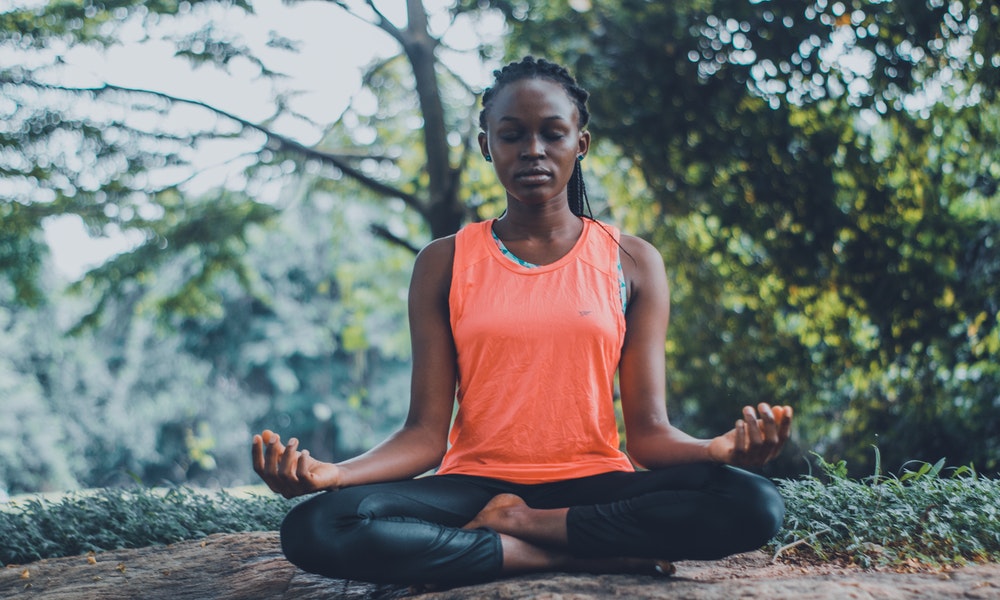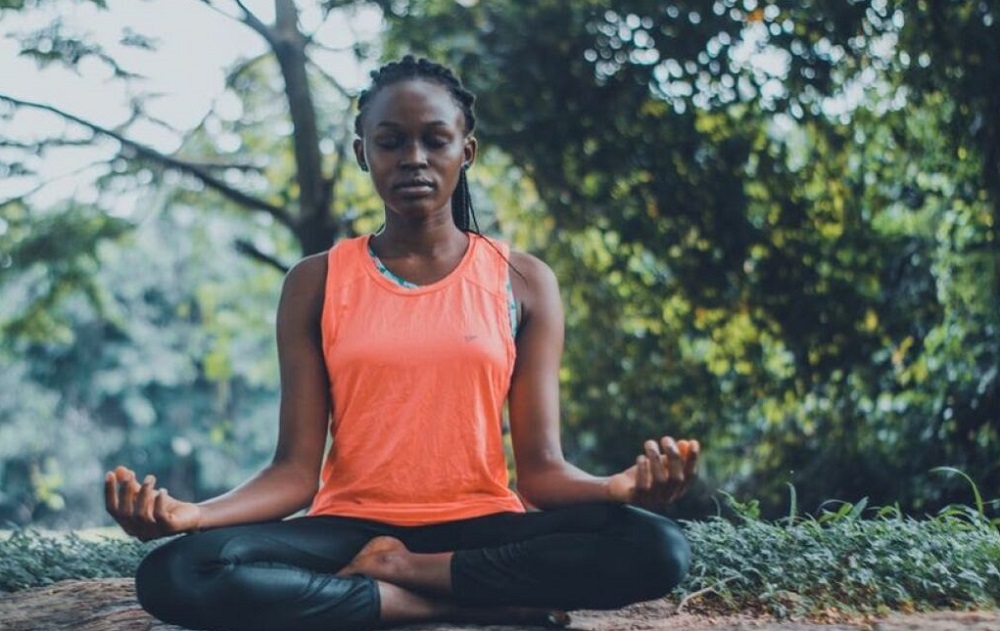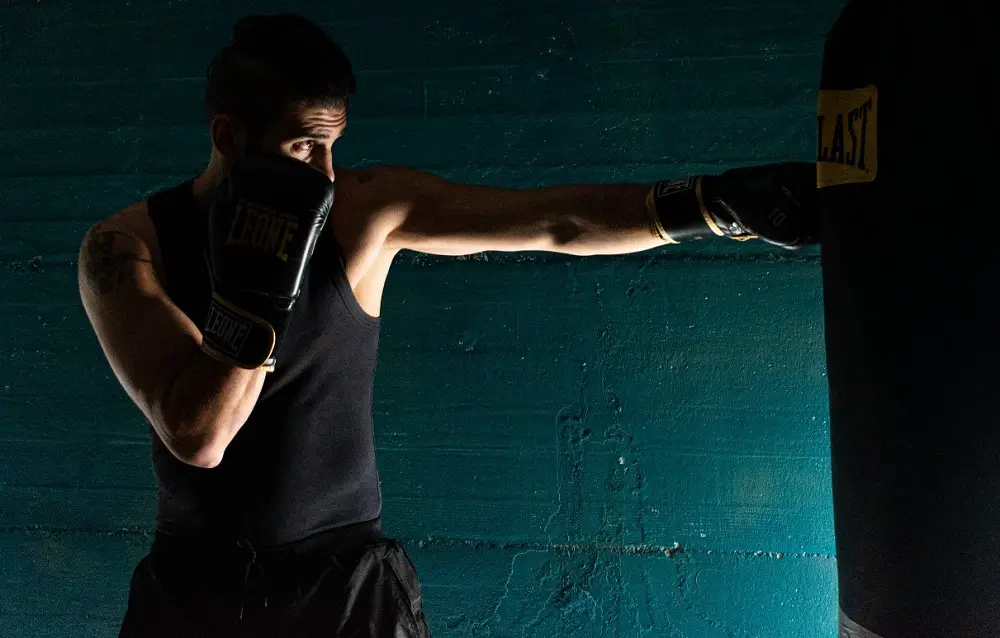
by Fatima Sheikh | Mar 28, 2022 | Personal Growth, Personal Life
In 2018, I was lucky to be selected to participate in the Young African Leaders Initiative (YALI) program for Cohort 6, West Africa. I was super excited and could not wait to show my true leadership skills. Before that, I was already the vice president of my Community Development Service (CDS) group. You might say I was craving leadership roles and all, but you are wrong. I am extremely introverted, a loner who loves her space and privacy. But I thought to myself, what exactly does it feel like doing something new, something out of the box, something I was not comfortable with? And I gave leadership a try; I did not only excel at my YALI program but aced it and was recognized among the top twenty-three participants in the Cohort.
What was my take home from these experiences? A lot and I am willing to share with you. Are you an introvert who loves his/her space just like I do, or on a quest of improving your leadership career? Here are some tips for you.
Tips to Improve Your Leadership Skills
1. Master Public Speaking
This was my biggest fail, during the beginning of my leadership role. I will always have panic attacks before any of the meetings. But constant practise and rehearsal helped me out.
Some people are born public speakers, while others aren’t. Either way, great public speaking skills go a long way in helping you communicate effectively with your team members. Join public speaking clubs like Toastmasters, you will be glad you joined.
2. Learn to Delegate
Being a leader isn’t just about being the boss and carrying out tasks all by yourself. A good leader is always concerned about how the followers carry out dedicated tasks. As a leader, you must guide your followers, educate them, and also delegate tasks to them. Don’t be a jack of all trades and delegates.
This is one of the hows improve your leadership skills
3. Analyze Your Strengths and Weaknesses
We all have our strengths and weaknesses and knowing them and working on them goes a long way in improving our leadership skills.
Take a personality test, ask your friends and family for their honest opinions on your strengths and weaknesses, and then work on them.
4. Get a Mentor
Getting yourself a mention is one of the ways to improve your leadership skills. We all have that one person we aspire to be like. We see ourselves being that person or even better. Get yourself a mentor. Learn from them or ask them to guide you on your journey.
Many are willing to help especially if you are serious-minded.
5. Become Self Disciplined
Just like George Washington said:
Nothing is more harmful to the service than the neglect of discipline; for it is discipline more than numbers that give one army superiority over another.
George Washington
A leader is not a true leader unless he or she possesses self-control and master self-discipline. Every leader or aspiring leader should have a professional order in carrying out their daily activities or assigned tasks. This will go a long way in moulding you to be a refined and respected person.
If you are naturally disorganized or late to work or meetings, build a daily strict regime to help you perform better and stand out from your peers.
Conclusion
Leadership does not only mean leading a town or a nation. You can be a leader in your own home to your siblings, spouse, or children, and having these leadership skills will always come in handy. Fortunately, leadership is learnable, so take courses, read materials or watch your mentors and parents execute their leadership style and learn from them.
Being a better leader is not as difficult as it might appear. With constant practice and hard work, you will achieve your goal of being a better leader.
I hope you find this write-up helpful. If you do, kindly leave a comment for me in the comments section. You could also tell us about any leadership position you have held previously. Thank you.

by Fatima Sheikh | Aug 30, 2021 | Personal Growth
If you want to go far in life, develop problem-solving skills. Communication skills are essential to help you achieve your goals but having problem-solving skills will always come in handy. One thing I have learned in life is, problems never end therefore we need the skills and expertise on how to handle them because we are going to encounter them.
Problem-solving might sound technical and seem like a complicated skill to acquire, but with consistency and practice, you will master it. From the first stage of identifying a problem to finally getting a solution to the problem, an effective problem-solving technique is a tool that can make both your professional and personal life easier.
What are Problem-solving Skills?
These are simply a set of strategies and methodologies to help you identify a source of a problem and also find the best effective solution to the problem.
How to Improve Problem-solving Skills
1. Take Notes
Form the habit of note-taking. Pen down your thoughts, observations, and ideas. As simple as this might sound, this habit helps you recognize patterns from past observations.
A problem solver is very critical about the pattern and occurrence of an event, their constant journaling helps you sharpen your problem-solving skills.
Additionally, the habit of writing things down rather than simply thinking about this is a power that needs to be exercised.
2. Improve Your Mindset
A problem solver should be open-minded and willing to view both problems and solutions from different perspectives. Your view and approach are very important to solve a problem; your mindset has a great impact on the outcome of the problem if you believe there is a solution and vice versa.
3. Have Mentors and Role Models
Having mentors or a guide especially in the aspect of career and personal skills development can goal a long way in simplifying your growth journey.
When enhancing your Problem-solving skill, having a mentor comes in handy to guide you on patterns, methodologies, and knowledge learning sources.
4. Improve on Your Decisions Making
Decision-making is a skill in itself and also a problem-solving strategy when you can make choices.
“Life is a chess match. Every decision that you make has a consequence to it”
P.K. Subban
I cannot stress enough the importance of having decision-making expertise to help you solve problems. You might be a leader in your team or faced with a decision making
5. Take Risks
Risk-taking is literarily the shortcut to being an expert in every field. You can only improve your problem-solving skills when you take risks and try out new strategies and solutions. Try out new things until you have overcome the fear of failure.
Make mistakes, but most especially learn from your mistakes.
6. Ask Lots of Questions
Make it a habit of asking solution-based questions to help you solve problems. Asking questions will serve as a guide and direction to finding a solution. Efficient communication is established by asking the right questions. Perfectly asking meaningful questions, ask and frame questions in a solution-oriented manner.
The how and what challenges you to find solutions and expand your thinking by going beyond what we already or normally believe is true.
7. Recieve Feedback
How do you know you are making progress on a task at hand? Ask for feedback. You might be working individually or as a team, asking for honest feedback will go a long way in shaping your problem-solving skills.
These opinions will guide you on improving your weaknesses and remaining consistent with your strengths.
Conclusion
From identifying a problem to establishing a solution, problems solving skills are skills every individual must possess. No matter how smart you think you can run away from problems, they will always find you.
So build your problem-solving skill and stand out. Read materials, make research, get a mentor, and most importantly make mistakes.
What else do you think will help improve your problem solving skills? Tell me in the comments box.

by Fatima Sheikh | Jun 21, 2021 | Personal Growth
Meditation has become popular amongst modern health enthusiasts. What started as a simple spiritual ritual amongst the Hindus is now taught on modern platforms and is accessible to everyone willing to start their journey through meditation.
This article is a detailed guide for beginners on how to meditate.
These techniques and strategies to achieve a clear and calm state have been modified, refined, and remodelled with little change from the original meditation techniques for individuals, health enthusiasts, and beginners on their journey to mindfulness through meditating.
As always, I am a huge fan of mindfulness and mental stability, I have tried different strategies and techniques to help me achieve mindfulness and focus better. With the unending life issues, I advise you to build techniques or select strategies to help you achieve a level of calmness and mental stability.
After extensive research on meditation and its benefits, I have discovered numerous meditation practices that I recommend you try out. These steps are also simple especially for beginners willing to learn how to meditate. Of course, you have to apply discipline to help you stay firm. Meditation has been categorized into different types and each one has its purpose, benefits, and step-by-step procedures on how to practice each of them. However, there are general practices that apply to all meditators.
General Meditation Practices
- Get a quite comfortable place with no distractions.
- Spread your mat or simple carpet to sit on for the exercise.
- Sit comfortably with your legs crossed.
- Rest the palms of your hands on your legs wherever it feels most natural.
- Focus your gaze and chin gently downward
- Pay attention to your breathing. Every breath you take in and out and how your body acts while you breathe.
- Bring your attention back anytime it wanders because it is going to wander.
- Gently lift your gaze and ease your breathing after the exercise. Get up gently and pay attention to how your body and mind have become calmer.
Types of Meditation Practice
Mindfulness Meditation
This is a simple meditation exercise that can be practised individually or in a group. Mindful meditation is most suitable for beginners starting their journey into meditation. In mindfulness meditation, you are required to pay attention to your thoughts without any form of judgment while staying focused on your present.
As a beginner mediator, all you have to do is observe your thoughts and patterns. Constant practice of this exercise has been researched to improve emotional states by eliminating depression and decreasing the stress level of patients with PTSD.
Concentration Meditation
This meditation is focused on using all your five senses during the exercise. As a beginner, your first time might be a little difficult concentrating without any thought interfering, but with constant practice and discipline, you will perfect the exercise.
In this meditation, you are required to get an object or sound to channel your concentration such as your breathing, repeating a word of mantra, listening to a repetitive gong, staring at a candle, or just counting a mala bead.
I recommend this exercise for anyone battling attention or focus. This exercise will help you improve your focus and concentration.
Spiritual Meditation
This meditation exercise, although easy for beginners willing to learn how to meditate, it is recommended for people seeking that sense of calmness and connection to God.
Essential oils and scents such as frankincense, myrrh, and sage are used to bring a sense of calmness and heighten the spiritual experience.
The steps and strategies are also similar to that of normal meditation although this meditation exercise is mostly practised at home or in a spiritual worship place by people seeking spiritual growth.
Conclusion
Meditation is over a thousand years old, integrating it into our modern lives has to lead to the modification of these spiritual practices to make it easier and practicable for people only seeking the health benefits of this practice. There are numerous types of meditation exercises such as the Mantra meditation that has to do with chanting a repetitive sound or phrase, or the Visualization meditation which is focused on enhancing feelings of relaxation, peace, and calmness by visualizing positive scenes or images.
If you are on a mental health journey or seeking to learn how to meditate for health benefits, I recommend you try these outlined meditation exercises and the steps outlined for effective results.
As a beginner, starting meditation might be difficult, but with constant practice and discipline, you will perfect these exercises and achieve the numerous health benefits that come along with meditating.
Tell me when you do try them out!

by Fatima Sheikh | Jun 1, 2021 | Personal Growth
Meditation is gradually gaining popularity around the world. What started as a spiritual practice amongst Hindu religious practitioners is now included as a daily habit in the lives of modern-day successful people as a must for a healthy lifestyle. There are tons and tons of videos on YouTube teaching and recommending meditation.
Although the modern-day meditation exercise varies from the traditional religious meditation practice, meditation exercise is researched to be healthy for both mind and body is included in your daily routine.
Today, meditation is practised by both religious persons and atheists without giving too much attention to its spiritual origin because of the numerous body and mind benefits of meditation. The techniques have been modified and modernized to accommodate all cultures and lifestyles.
Are you stressed, feeling emotionally down, tensed, worried, or battling one or two medical conditions? Then I advise you consider giving meditation a try.
Benefits of Meditation That Will Convince You to Start Bow!
1. Mediation Benefits Your Emotional Well-being
Meditation benefits and practices have been developed and categorized into different types to fit different circumstances. Consistent practice of mindful meditation like mantra meditation will help you curb issues such as anger, anxiety, and moods. It will increase your self-awareness, reduce stress, give you a greater sense of calm, increase your self-compassion and give you a more positive outlook towards life.
In summary, all sorts of emotional baggage that might hinder your productivity and positive outlooks will be easier for you to manage.
2. It is Good for Your Physical Well-being
Meditation might be categorized as a mindful and concentration exercise, but this series of exercises have a tremendous benefit on the physical body health of the individual. A 2020 study of more than 6,400 participants across 60 trials showed that meditation could reduce pain in those who suffered from post-surgical, acute, or chronic pain.
Because meditation can alter the brain receptors, studies have shown that mindfulness training through meditation can benefit people battling different sorts of addictions such as substance abuse.
Research has shown that consistent meditation will improve your physical health positively by reducing fatigue, your susceptibility to colds fights premature ageing, reduce harmful inflammation, etc.
Everything that affects your emotional state positively will have an impact on your physical outlook.
3. Meditation Improves Self-esteem and Self-awareness
Another benefit of meditation has been researched to help improve self-esteem and self-confidence. Mindfulness associated with meditation boost self-awareness helping you better understand yourself, have a deep analysis of yourself and your life journey, your strength and weakness thereby helping you grow.
These deep thoughts and conversations with yourself will help you further analyze yourself through your own eyes. The result will help you accept your strength and flow, know what to improve in yourself in so doing giving you the confidence boost you need.
Meditation exercise like tai chi is popular for improving your awareness and self-esteem. If you are experiencing social anxiety or battling self-confidence, give meditation a try as a step to your journey to becoming better.
Conclusion
Subjects around mindfulness are topics I love dwelling on. Humans are always looking for emotional support and solutions to emotional instability. Life is full of challenges and we must conquer these challenges to grow. The need for these exercises is and will continue to be on the rise. Mindful exercises like meditation might have started as a simple religious practice, but today, it has become popular and has been included as an everyday routine.
There are more benefits to meditation that a single article might not contain. Further research will guide you on various meditation styles, strategies that will fit your lifestyle and objectives. Today meditation has advanced and can be found on modern apps and platforms for ease and convenience. Try meditation today for a healthy productive life. Learn how to meditate as a beginner.
Also, how has meditation improve your well-being?

by Fatima Sheikh | May 27, 2021 | Personal Growth
Many see self-discipline as a very difficult trait to develop and attribute it to characteristics belonging to only a few. When it comes to the aspect of self-development, it is easier to discuss a range of topics in this area than discuss self-discipline.
Years of living in a boarding school have thought me a lot about self-discipline and the traits I developed have helped me achieve goals I thought were never possible thereby making me stand out amongst my peers. Simple habits like waking up early and going to bed early can tremendously groom you to be focused and help you achieve your objectives easier.
As simple as it might sound, self-discipline is a very powerful trait, and if possessed by an individual can keep you ahead of many. At first, developing a structured disciplined path might seem difficult, but just like a muscle, the more you work on developing and using it, the stronger it becomes. Self-discipline is not limited to career growth, imbibing a disciplined routine in your normal day-to-day activities such as health, lifestyle choices, relationships, financial decisions, and a personal life choice always boosts your self-esteem and keeps you on top of your game.
The formula for mastering self-discipline is simple, begin by setting a goal, find motivation, Identify obstacles, replace old habits, be consistent, push yourself regardless of how you are feeling emotionally follow through with your intention and hard work. Still, wondering why you need to master self-discipline?
Reasons Why You Should Master Self-discipline
1. It Helps You Gain Self-control and Inner Strength
We live in a time where everything is available with a single click; we are bombarded daily with a chunk of options for every issue. Having a sense of control of your decision can go a long way in helping you stay focused on your goals.
It might be developing a healthy routine to shade some weight or daily habits to help you achieve your career goals, mastering self-discipline will help you develop that self-control to keep you focused and going.
2. Self-discipline Keeps You Going and Motivated
The past few months have been a tough one on everyone with the Covid19 lockdown. Many got infected with the virus, some losing loved ones, jobs, and everyone has to stay away indoors without socializing for months. This took a toll on everyone directly or indirectly and in a situation like this, we all need a source of motivation to keep us going and never giving up.
Life will always throw lemons at you but you need to make lemonade out of them. Having a strict regime to help you achieve your set goals will help you stay motivated to keep going and never giving up.
3. Boost Your Self-confidence
Self-confidence is a trait many struggles with, in my last article, I share a list of tips and advice on how to overcome low self-confidence and stand out amongst the crowd. If you are on a journey to build your self-confidence, mastering the art of self-discipline will make it easier for you to achieve your goal.
Developing a disciplined regime will keep you going making it easier for you to achieve your goals thereby giving you that self-confidence boost.
4. Keeps You Focused on Achieving Your Goal
One in five people are procrastinators and 20 per cent of U.S. men and women are chronic procrastinators, they delay at home, work, school and in relationships.
Dr Ferrari
This statistic is also not different from in other places around the world. To beat this habit of giving up on your goal, you will need a schedule and set of disciplined routines to keep you in check.
Mastering self-discipline will keep you focused on your goals and make it easier for you to achieve them.
5. You Become the Best Version of Yourself When You Master Self-discipline
Everyone is panicking about robots taking over their jobs in the future, although machines and modern technological innovation are already taking people out of the job market. Sooner or later modern technology will advance to a level where only experts in a field will be required. Don’t panic, this might take a while to fully come to existence.
Robots and machines are fully dependents on people, so robots and machines will still need experts to manage them. This breeds room for competition and the need to improve your skills and expertise to be amongst the best in your field.
Mastering self-discipline in all areas of your life including education, career, and skills accusation will make you a better version of yourself and make it easier for you to be recognized amongst the top in your area.
Conclusion
When it comes to topics like self-discipline, there is never enough tips and strategy to help guide you to achieve mastery. Self-discipline is a vital skill if included in your daily routine and all aspects of your life such as daily routine, house chores, education, career, relationship, and self-development would go a long way in moulding you to be the best version of yourself thereby making you amongst the few successful lots. It is also one of the daily habits of successful people.
There are books, materials, and videos that can guide you step by step on how to master self-discipline. With hard work and consistency, you will be a master of self-discipline. The secret of your success lays in your daily routine.
Finally, what are some of the ways that have helped you become more disciplined? Tell me in the comments section!





